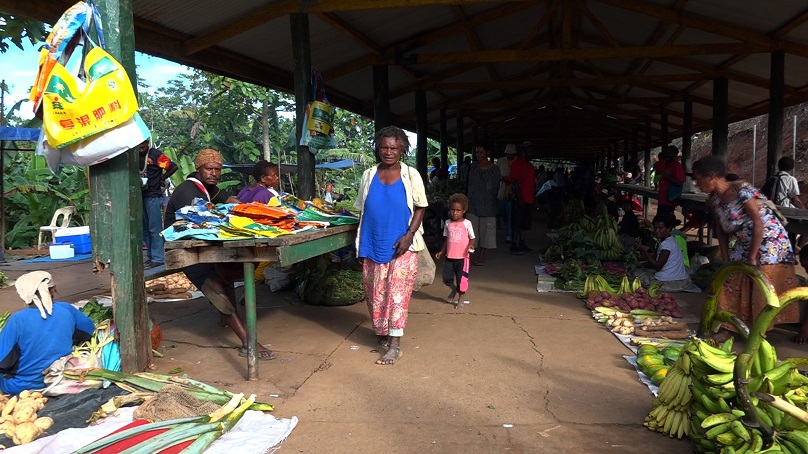UN Women’s Market for Change (M4C) project is an initiative funded by the Australian Government and implemented in partnership with UNDP.
The M4C project aims to ensure safer marketplaces in both urban and rural areas for women in Fiji, Solomon Islands and Vanuatu.
But why is there a need to create safer market places for women?
According to UN Women between 75 and 90% of market vendors in the Pacific are women.
The economic role of women in their individual household and as part of the wider community is vital in poverty reduction and decision making with regards to livelihood.
However these women, those whose source of income is derived from the sale of goods at market places are no stranger to the risk of physical and sexual violence that lingers in and around these market places.
In Papua New Guinea, a majority of households depend on the sale of cash crops to sustain themselves. Most market vendors ( around 80% ) are women.
UN Women conducted a scoping study in 2011-12, to understand the nature and extent of violence against women and girls, including sexual violence and sexual harassment in 6 market places.
Results indicated that 55% of women experienced some form of sexual violence in market spaces in the previous year. Poor sanitation in markets was also highlighted in the study and in areas around bus stations vendors felt particularly vulnerable to assault.
Through Port Moresby’s Safe City Programme (a UN Women’s safe cities initiative) change has been effected in various market places around the Nation’s Capital.
Change that has helped to improve the existing infrastructure of these market places making it safer and sanitary, for vendors and customers.
Additionally, innovative cashless methods for the collection of fees were implemented so as to reduce the risk of extortion and theft.
As such, safer market places for women, not just in the Pacific but around the world is crucial, and NGO’s and Governments across the globe should work hand in hand to implement such projects.
Related Articles:
Market day in Papua New Guinea brings steady flow of harassment for women


